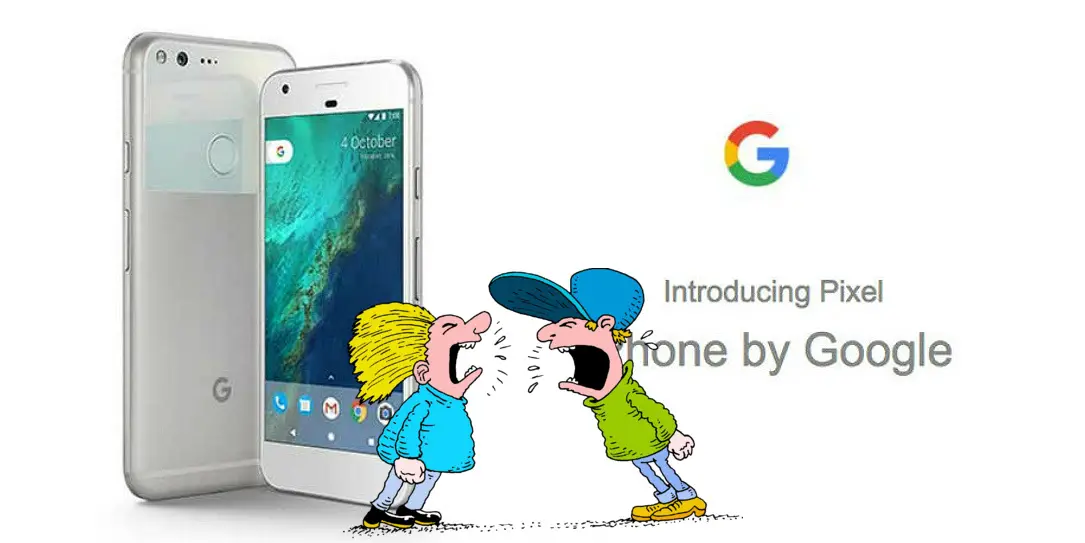Anytime a company introduces a new direction there is bound to be discussion among the core user base and Google’s user base has a lot to say. Like most other companies, Google’s user base can be split up between people who are passionate about their products and those who just care that their products do what they need them to do. Not every Google/Android user is reading this or any other article about Google, but those who are aren’t exactly seeing eye to eye about Google’s new direction.
Google’s Android operating system has always been and continues to be free and open-source. Developers are free to tinker with Android and manipulate it to fit their needs. This is why OEMs like Samsung, LG, Sony, HTC, and Motorola’s user interfaces all look slightly different. Many of these manufacturers take Android and then layer their own user experience (ROMs) over top of the core functionality. Even hobbyists create their own versions of Android and you can find dozens of user created ROMs online in forums like xda-developers. But while you can certainly do what you want with Android, there are certain parts of Google’s code that are proprietary, the biggest of which is the Google Play Store.
The Google Play Store is where users will find millions of apps that many have come to depend on. While there are other app stores you could use to get your apps from, many of those sources aren’t as well curated and have much less security than the Google Play Store. Amazon is probably the second best option for apps but their store still pales in comparison to the Play Store. Yesterday’s announcement of Google Pixel, Google Home, Google VR, Google Assistant and basically a whole new Google hardware lineup has gotten the hardcore user base riled up. There are a few reasons these hardcore fans are butting heads.
First let’s address pricing. Before there was Pixel, there was Nexus. Nexus users have always found pride in the fact that they owned a pure Android experience with both timely updates and a price tag that came in under Apple’s iPhone. Nexus phones weren’t dirt cheap mind you, they still cost a decent amount of money but compared to Apple’s flagship, they were affordable. When Pixel’s price point leaked at a base of $649USD, the community went bananas.
The Nexus purists are now staring at a phone that’s priced at iPhone levels, something they feel is a slap in the face. On the other side of the coin are the Nexus users who believe for Google to be competitive and market their Pixel phones against Apple, they must command a premium price. There’s even disagreement about just how premium the Pixel phones really are. While none but the most elite of technology blogs, and of course Googlers and invited guests, have gotten to actually use one, people already have formed their pro or con on the premium classification of these phones.
Now let’s address Android and open source. While Android will always remain open source, there are those in the fanatic user base who believe Google is closing the ecosystem up tighter placing more restrictions on developers and OEM’s. These users truly believe that Google has once again turned into Apple and will eventually have a walled garden just as Cupertino does now. On the flip side you have those users who believe that Google’s tighter restrictions mean better security, better apps and a better Android experience for all. It’s an argument of continuing to allow the wild west development verses bringing law and order to the ecosystem.
Finally there’s exclusivity and locked out features. Exclusives are something nearly every hard core Android user hates with a passion. The community regularly got up in arms when Samsung, LG, or any other OEM made exclusive deals with carriers for their phones. With the Pixel that has changed the attitude of some of those users. There are still those users who absolutely hate the fact that Google has made a deal with Verizon, there are those who have changed their tune. But exclusivity doesn’t just mean carriers having first rights to one model phone, it also extends to the software.
https://youtu.be/Rykmwn0SMWU
Google has made some software features exclusive to the Pixel at first but there is question as to if their Nexus line of phones will see the upgrades. Google has traditionally supported last years hardware with their latest software but this may not be the case for Nexus. Again there is a split between camps in this choice. Some see this as necessary as Google launches a new line of phones aimed to entice current iPhone users and high end smartphone buyers. The other side sees it as another slap in the face to a community that helped make Android what it has become.
It’s an interesting time for Google/Android users. Their platform is maturing and thanks to developers, OEM’s, and users it’s become a dominate force in the mobile market. There will be a lot of discussion on whether or not Google is doing the right things here and people are bound to disagree. I’ve even seen many of my followers who have always been hard core Android users jumping over to iPhone, their reasons vary but the rift is that deep.
What do you think? What side are you on? Let us know in the comments below or on Twitter, Facebook and Google+.
Last Updated on January 23, 2017.










